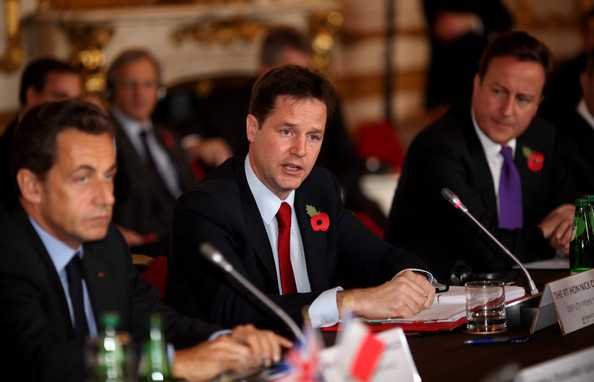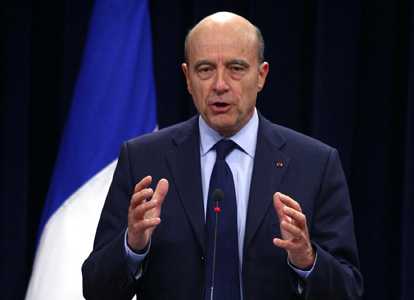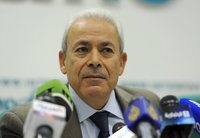By George Parker in London and Hugh Carnegy in Paris
 Britain has described as “simply unacceptable” attacks on the UK economy by French ministers and central bankers, as tensions over the eurozone crisis brought relations between the two countries to a new low.
Britain has described as “simply unacceptable” attacks on the UK economy by French ministers and central bankers, as tensions over the eurozone crisis brought relations between the two countries to a new low.
Amid fears in Paris that France could lose its triple A sovereign debt rating, François Baroin, French finance minister, on Friday said: “The economic situation in Britain today is very worrying, and you’d rather be French than British in economic terms.”
His comments follow remarks by Christian Noyer, head of the Bank of France, who said credit rating agencies should be more worried about Britain, which had “bigger deficits, more debt, higher inflation and less growth than us and where credit is shrinking”.
Initially the attacks were shrugged off by Downing Street. British officials saw the comments as an attempt to deflect attention from the possible downgrade and from new figures showing France had slipped into recession during the fourth quarter.
Nick Clegg, UK deputy prime minister, told François Fillon, French prime minister, that the comments were “simply unacceptable” and steps should be taken to calm the rhetoric.
Mr Fillon had earlier talked about “our British friends who are even more indebted than us”. He told Mr Clegg he had intended to illustrate what he believed was the rating agencies’ inconsistency.
France is irritated it has been threatened with a downgrade despite its budget deficit, at 5.7 per cent of gross domestic product this year, being lower than Britain’s at more than 9 per cent. Mr Fillon told Mr Clegg he had not meant to question Britain’s triple A rating.
Downing Street said the comments coming from Paris were “not the most helpful contribution”. David Cameron’s spokesman said the coalition government’s deficit reduction plan – one of the most aggressive of any big economy – had reassured the rating agencies.
But Conservative MPs were less diplomatic. Neil Parish, a Tory MP and former MEP, said: “I suggest the French keep their mouths shut and put their own house in order.”
Tensions between Britain and France have been rising for weeks and were inflamed when George Osborne, UK chancellor, compared market concerns over French debt with the situation in Greece.
David Cameron’s use of the veto in last week’s European Union treaty negotiations provoked attacks from Nicolas Sarkozy, although the blockade delivered to the French president precisely the looser intergovernmental deal on eurozone fiscal discipline he had wanted.
In an attempt to make an agreement more palatable to non-eurozone countries, a first draft said they would not be forced to comply with tough budget rules until they adopted the single currency.
Mr Cameron and Mr Sarkozy have not spoken since the summit, in contrast to attempts by Angela Merkel to patch up relations with the UK prime minister. On Friday the German chancellor phoned Mr Cameron to discuss negotiations on the new eurozone treaty.
Eurozone bond markets mostly rallied on Friday despite worries over downgrades of the region’s sovereign debt. Fitch placed Belgium, Cyprus, Ireland, Italy, Slovenia and Spain on watch for a ratings downgrade.
In thin markets, French and Spanish yields fell as some investors speculated that buying could have been sparked by banks looking to use the bonds as collateral for cheap loans from the European Central Bank next week. Gilt yields were also close to fresh record lows, while US Treasuries were heading for their biggest weekly gains in six weeks.
“A lot of funds and clients are no longer trading because of year-end and uncertainty in these markets,” said one trader at a European bank. “But yields for Spain and Italy are still very high and it is difficult to see them coming down much before Christmas, particularly with worries over sovereign downgrades.”
The euro traded more or less flat with sterling. The pound touched 10-month highs this week as fears around the eurozone started to prompt some sellers in the single currency. European equities were also more or less flat as they lacked clear direction.
Additional reporting by David Oakley and Joshua Chaffin
www.ft.com, 16 December 2011





